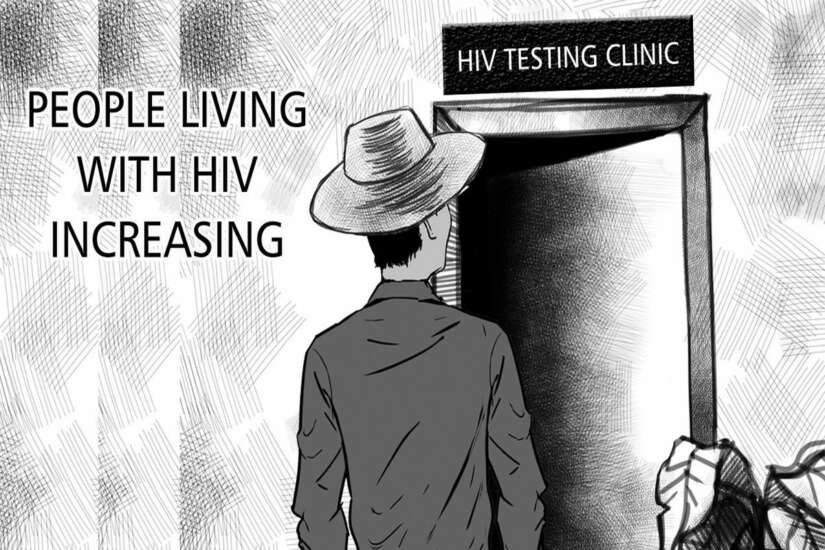IF there’s an “upsurge” in human immunodeficiency virus (HIV) cases in impoverished Philippines, blame it partly on the crippling coronavirus disease 2019 (COVID-19) pandemic.
The fight against AIDS, which is the most advanced stage of HIV infection, has been set back by the pandemic, leaving thousands of people living with HIV undiagnosed and untreated.
Every year since 1988, all members of the United Nations (UN), including the Philippines, have been marking World AIDS Day on December 1 to raise awareness on the AIDS pandemic.
This year, Anakalusugan party-list Rep. Michael “Mike” Defensor, vice chairman of the House committee on health, expressed concern over the mushrooming number of people living with HIV.
Citing National AIDS Registry statistics, Defensor said that at the height of the lockdowns from April to June 2020, only 934 new HIV cases were detected nationwide.
He said the figure was down 68 percent from the 2,938 registered in the same three-month period last year.
Defensor said “there’s only one reason for the big drop in newly-reported HIV cases – fewer Filipinos who may be living with HIV are actually getting tested” due to disruptions caused by COVID-19.
Note, however, that the United States has committed more than P875 million to support the country’s efforts to prevent and treat the dreaded HIV-AIDS, according to the US Embassy in Manila.
In fact, the US government has launched the new “President’s Emerging Plan for AIDS Relief (PEPAR)-funded program.”
For two years, the program will be implemented by the US Agency for International Development, US Centers for Disease Control, US Health Resources and Services Administration, and the US Department of Defense.
Of course, it will be implemented in cooperation with the Department of Health (DOH) and local community organizations, according to USAID acting Mission Director Patrick Wesner.
The funding will be used to address the increasing number of people, who are living with HIV in the Philippines, which has the fastest-growing HIV epidemic in the Asia-Pacific region.
Although there’s still no known cure or vaccine for HIV, with proper medical care, it can be managed and a near-normal lifespan can be expected with early treatment.

